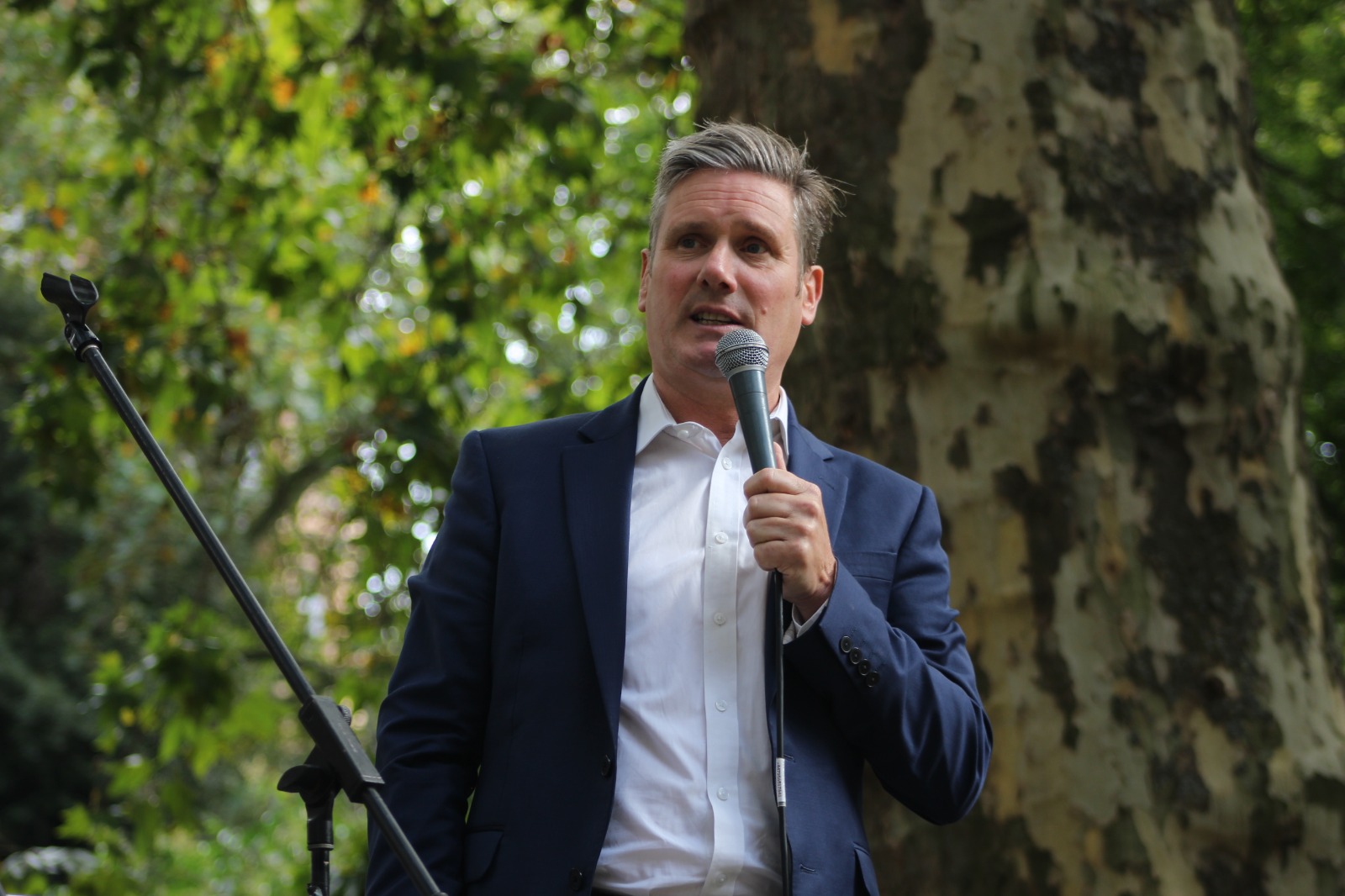Keir aura
Conrad Landin concludes that a new biography of the Labour party leader gives the would-be PM an easy ride
Thursday, 16th May 2024 — By Conrad Landin

Sir Keir Starmer
WHEN Keir Starmer was selected as Labour’s prospective candidate for Holborn and St Pancras in 2014, one Camden councillor described the choice as: “The forward march of Progress halted.”
Paraphrasing Eric Hobsbawm, this was not to suggest Starmer’s victory would bring about an end to social change. It referred instead to the Blairite faction Progress, now known as Progressive Britain. Starmer, after all, had effectively come through the middle of the selection: with the organised right backing council leader Sarah Hayward, and the left plumping for her sometime predecessor Raj Chada. Sceptics of the party’s rightward drift greeted the choice not with celebration, but with some relief.
Starmer’s campaign for the Labour leadership in 2020 took a similar tack, putting forward a safe pair of hands that would continue the popular policies of Jeremy Corbyn without any of the so-called baggage. He was neither Rebecca Long-Bailey’s continuity Corbyn nor the miserablist retreat of Lisa Nandy.
But his path to power has been littered with the bodies of the Labour left: most notably that of Corbyn, whom he described as a “friend” when running for leader, but has since said never was. Such is his leadership’s authoritarian clampdown on party democracy that this human rights lawyer who once flirted with Trotskyism is now known by some as “Sir Keith Stalin”.
Tom Baldwin’s enlightening new book is more hagiography than biography, having started life as a ghost-written memoir that Starmer subsequently abandoned. It is the first such book to have extensive access to – if not full authorisation from – the Labour leader, his family, friends and staff.
Its author is best known as the Murdoch press political editor who became Ed Miliband’s communications director, but a footnote midway through shines light on a more interesting connection to Labour. In the summer of 2018, Baldwin, then chief spinner for the People’s Vote campaign for a second EU referendum, joined Starmer, then nominally loyal to Corbyn as shadow Brexit secretary, and Alistair Campbell for “fairly clandestine meetings over coffee and eggs… in cafés dotted around Kentish Town”.
Though Baldwin insists the future Labour leader was initially resistant to a second referendum, this was no doubt the beginning of his conversion to the cause that would wreck Labour’s chances in the general election the following year.

It is not the only revelation of Camden’s central role in the shady manoeuvres that would secure the defeat of the Labour left. When Starmer effectively launched a shadow leadership campaign in March 2018 – less than a year after Labour had deprived the Conservative party of a majority at a time of the latter’s own choosing –it was known as the “Arlington Group”.
Weekly meetings were held at the home of fellow MP – and later chief of staff and Labour peer – Jenny Chapman in Arlington Road, NW1. Other participants included Chapman’s MP husband Nick Smith, a former Camden councillor.
“Coincidentally, Arlington Road was also the title of a Hollywood thriller starring Jeff Bridges about a sinister right-wing terrorist plot involving seemingly normal neighbours,” Baldwin wryly notes.
Such moments of insight and humour aside, much of the book reads like a desperate plea against the characterisation of Starmer as both boring and unprincipled.
Beginning each chapter with a tableau of Starmer in the present day, Baldwin then attempts to root this in the leader’s formation as a man. We repeatedly see him, then and now, playing eight-a-side at Kentish Town’s Astroturf pitches, an activity he will have to say goodbye to if he makes it to Downing Street. Baldwin is at pains to stress Starmer’s discomfort with speaking about his family and personal life, though this can’t be that acute given how often they appear in his speeches.
And though Baldwin has an eye for a good anecdote and turn of phrase, his tone often veers into the overly defensive. He is forever anchoring Starmer’s blunders in the context of personal tragedy. He gives occasional voice to Starmer’s critics, though often without the respect of naming them, and then proceeds to dismiss their perspectives. He rubbishes criticism as snobbery or conspiracy theory.
Starmer’s strategy is formed of three stages: proving his party has changed from the Corbyn era; demonstrating the Tories are not fit to govern; and then giving people a positive reason to vote Labour.
Baldwin acknowledges that the third, incomplete stage is potentially compromised by his fixation on caution and “responsible government” – itself a product of stage one. He does not spell out that Starmer’s insistence that Labour’s spending be bound by that of the current Tory government will hinder his ability to make any meaningful difference to the performance of public services.
He fails too to see the broader potential for conflict between all three stages.
To emphasise that the party has changed, Starmer last week welcomed the hard-right Tory MP Natalie Elphicke into the Labour fold. Given her very recent cheerleading for the Tory government, including over Rwanda, it seems an odd way to prove the Tories are unfit to govern.
More still, his abandonment of his own leadership campaign pledges – such as public ownership of mail, energy and water – displays not just a satisfaction with the status quo but an erratic reactionary bent to his own leadership.
His statement that Israel “does have that right” to cut off water and power from Gaza, which he later claimed he never meant, despite it being on tape, was followed by a contradictory defence of the principle of cutting off supplies by his colleague Emily Thornberry.
Labour’s rule book now also states that “neither the principles of natural justice nor the provisions of fairness… shall apply to the termination of party membership”. So much for human rights.
So far, Starmer has evaded much scrutiny of these worrying tendencies. But a short election campaign, as 2017 taught us, can change an awful lot.
Starmer may be on the cusp of power, but he has more to worry about than giving up eight-a-side.
• Keir Starmer: The Biography. By Tom Baldwin, William Collins, £25